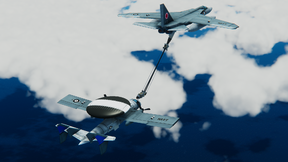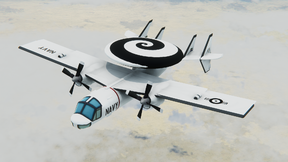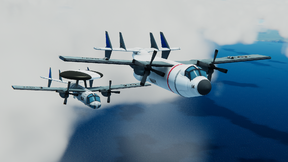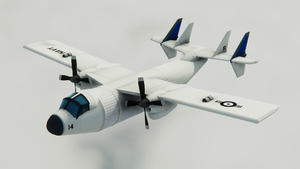EF-4 Skyshield
|
EF-4 Skyshield
|
|||||
|---|---|---|---|---|---|
| Naval AWACS | |||||
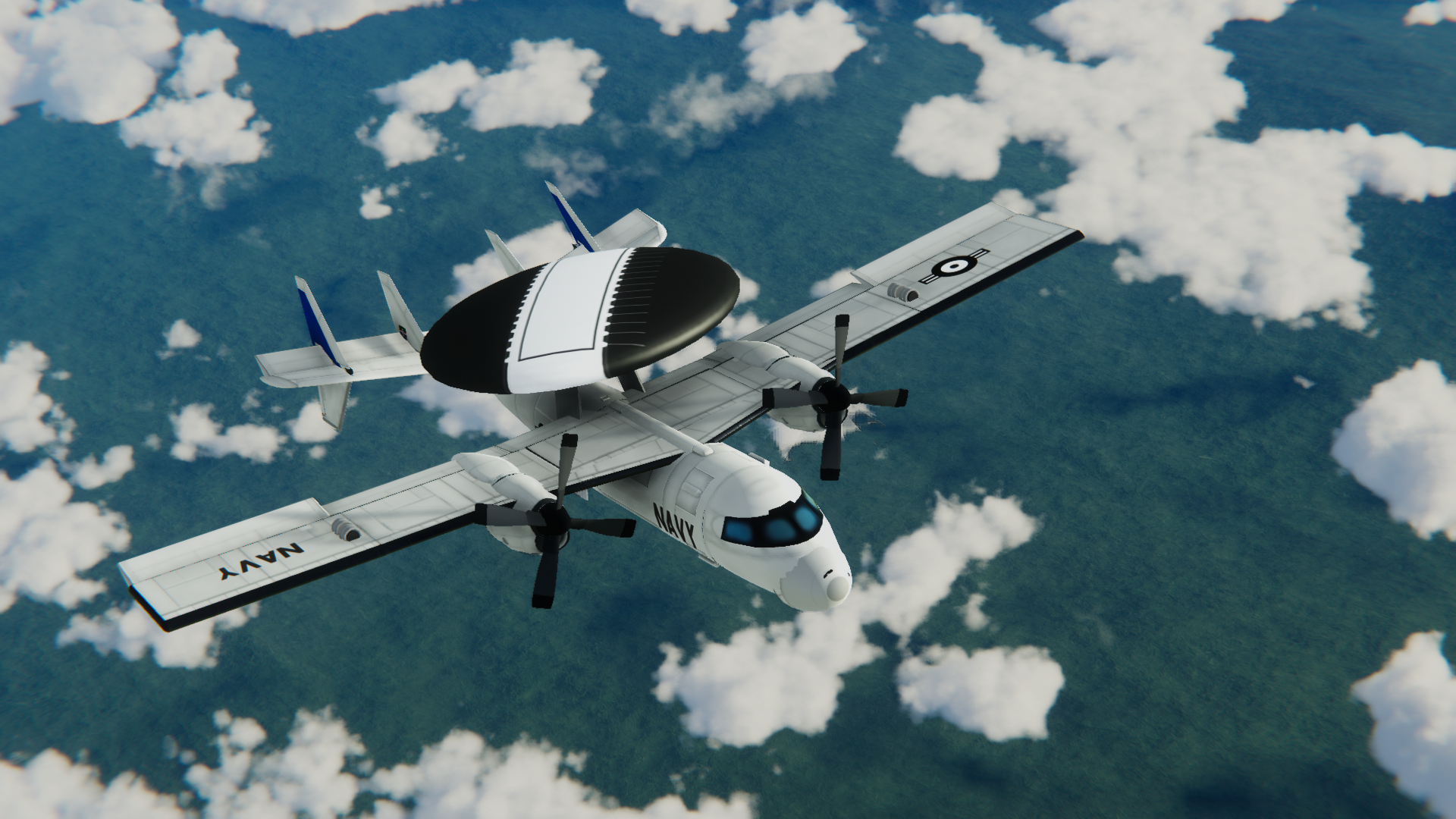 |
|||||
| National Origin | Zokesia | ||||
| Production History | |||||
| Designed | |||||
| 2142 - 2143 | |||||
| Produced | |||||
| 2145 - Current | |||||
| Designer | Ward Industries | ||||
| Unit Cost | 29,000(√) | ||||
| Number Built | 164 | ||||
| Service History | |||||
| In Service | |||||
| 2145 - Ongoing | |||||
| Used By | Zokesia The Confederacy UIF | ||||
| Aircraft Characteristics | |||||
| Dry Mass | 17,800kg | ||||
| Propulsion | 2 x Logi CW-25T Turboprops | ||||
| Maximum Velocity | 340 m/s | ||||
| Operational Range | 500 km | ||||
The Ward Industries EF-4 Skyshield is a Zokesian all-weather, carrier-capable tactical airborne early warning (AEW) aircraft. This twin-turboprop aircraft was designed and developed during the early 2140s by Ward Industries for the Zokesian Royal Navy as an airborne early warning craft to extend the range of their carrier's sensor array. The aircraft's performance has been upgraded with the EF-4A and EF-4B versions, where most of the changes were made to the radar and radio communications due to advances in electronic integrated circuits and other electronics. The fourth major version of the Skyshield is the E-4C, which first flew in 2190. The EF-4 was the first aircraft designed specifically for AEW, as opposed to a modification of an existing airframe. Variants of the Skyshield have been in continuous production since 2145, giving it the longest production run of any carrier-based aircraft.
Development
Design
Operational history
Variants
C-2 Skytruck
A version of the Skyshield was build in 2160 following the need for a small, cost-effective replenishment aircraft that was carrier capable, as the MZ-22 Albatross was grounded frequently for rotor tip stall issues. A modified Skyshield was given a cargo bay and ramp and was pushed into service within a year. They have since become the Carrier's primary cargo replenishment aircraft, taking up less space and lower cost than MZ-22 Albatrosses in the same role, while trading reduced size of cargo capacity.
